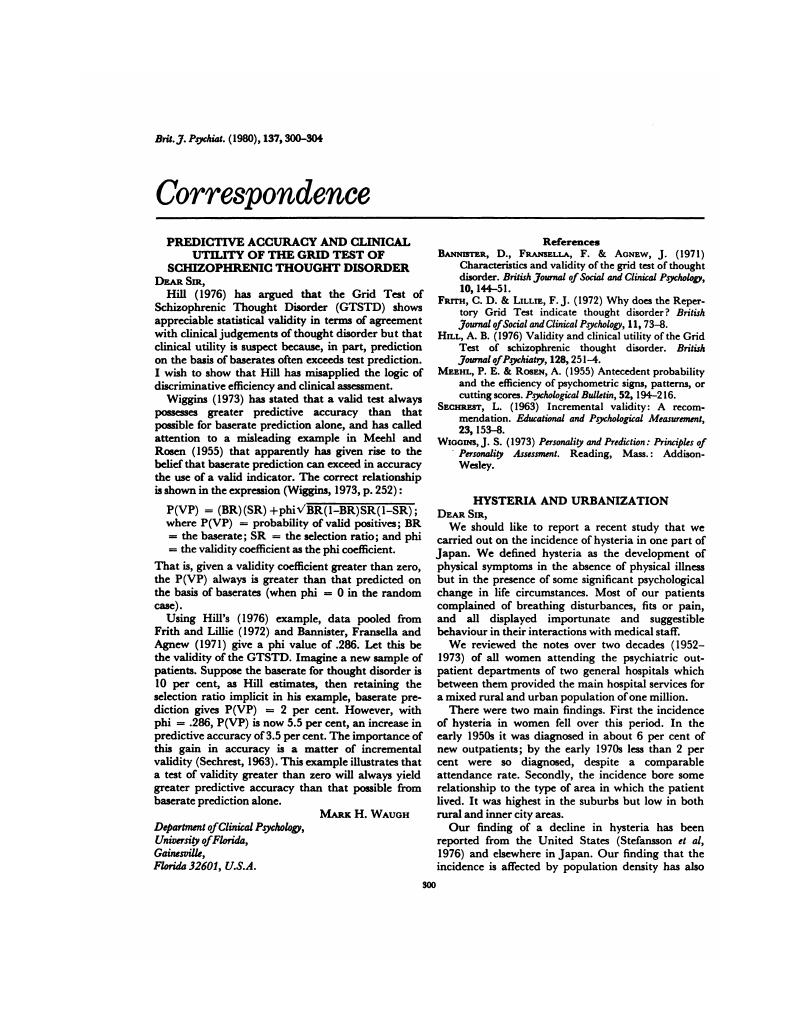No CrossRef data available.
Article contents
Predictive Accuracy and Clinical Utility of the Grid Test of Schizophrenic Thought Disorder
Published online by Cambridge University Press: 29 January 2018
Abstract
An abstract is not available for this content so a preview has been provided. As you have access to this content, a full PDF is available via the ‘Save PDF’ action button.

- Type
- Correspondence
- Information
- Copyright
- Copyright © Royal College of Psychiatrists, 1980
References
Bannister, D., Fransella, F. & Agnew, J. (1971) Characteristics and validity of the grid test of thought disorder. British Journal of Social and Clinical Psychology, 10, 144–51.Google Scholar
Frith, C. D. & Lillie, F. J. (1972) Why does the Repertory Grid Test indicate thought disorder?
British Journal of Social and Clinical Psychology, 11, 73–8.Google Scholar
Hill, A. B. (1976) Validity and clinical utility of the Grid Test of schizophrenic thought disorder. British Journal of Psychiatry, 128, 251–4.Google Scholar
Meehl, P. E. & Rosen, A. (1955) Antecedent probability and the efficiency of psychometric signs, patterns, or cutting scores. Psychological Bulletin, 52, 194–216.Google Scholar
Sechrest, L. (1963) Incremental validity: A recommendation. Educational and Psychological Measurement, 23, 153–8.CrossRefGoogle Scholar
Wiggins, J. S. (1973) Personality and Prediction: Principles of Personality Assessment.
Reading, Mass.: Addison-Wesley.Google Scholar



eLetters
No eLetters have been published for this article.